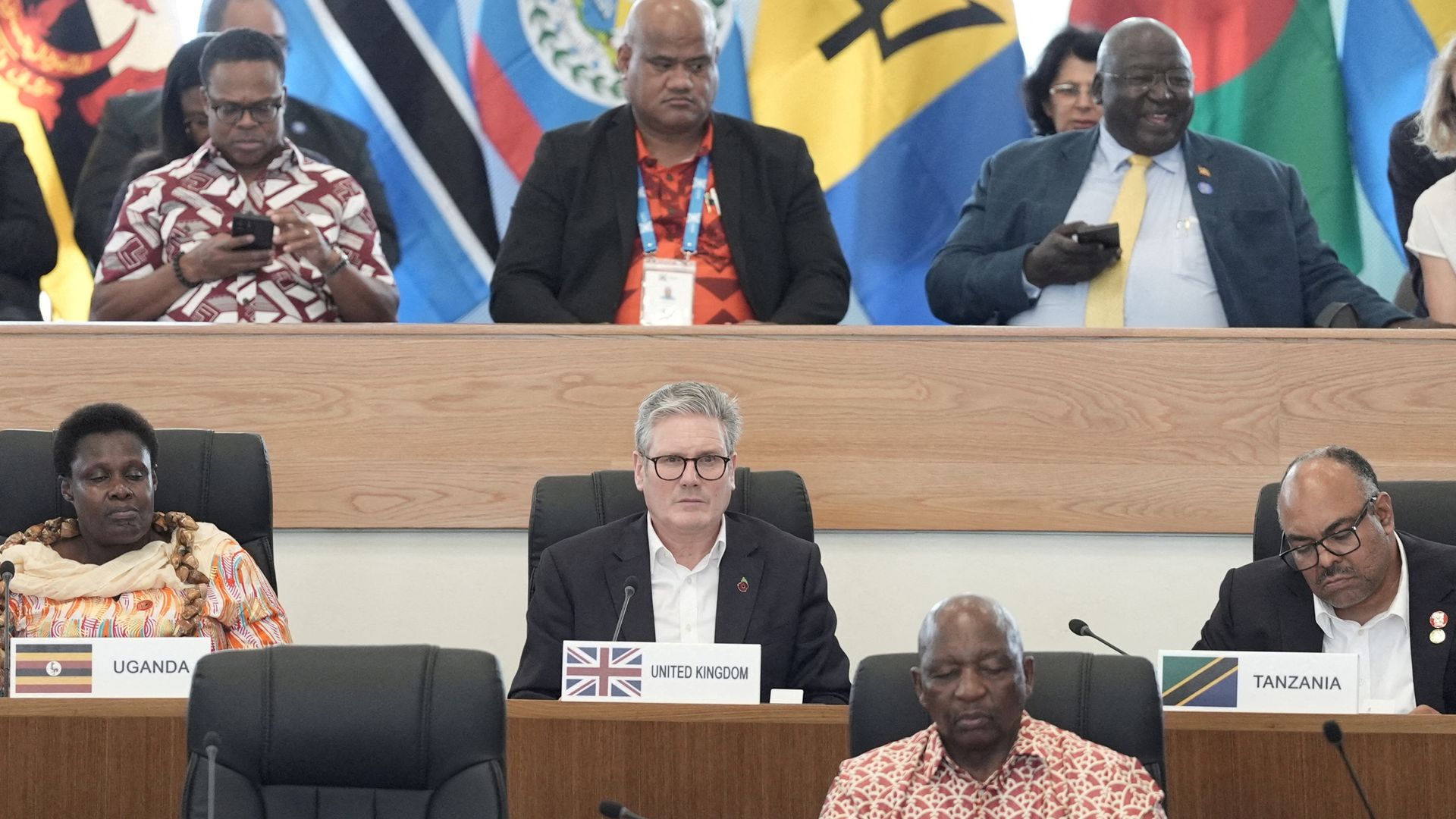“As a British taxpayer, would you be happy to contribute towards slave trade reparation?” I ask, on a quiet Sunday morning at Brixton market in south London.
It’s not an easy question to pose to a stranger.
But Chino, who I’ve just sparked up a conversation with, answers without hesitation: “Well, yeah, definitely.”
He’s originally from an ex-Commonwealth country, Zimbabwe, and admits that makes him “definitely biased” with a “different take” on the matter.
I’m asking him, and others here, what they make of growing calls from leaders of Commonwealth countries for the UK to pay reparations for the role it played in the transatlantic slave trade hundreds of years ago.
Chino says there’s a “good argument” for reparations because “a lot of benefits have been had out of Commonwealth countries”.
He’s not alone in that view.
Labour Party suspends MP Mike Amesbury after video showed him punching man in street
Budget will embrace ‘harsh light of fiscal reality’, Sir Keir Starmer to say
Budget 2024: What’s likely to be in it – and what isn’t?
Listening to music on her headphones and walking briskly through the market is Ebony, who’s Jamaican.
“I feel like we need to give reparations in the modern day context… like community help,” she says.
She adds that “symbolic” reparation – such as an apology – would not be enough.
“Everything is ‘symbolic’,” she insists. “This is, ‘let’s talk money’.”
Similarly, Grace, shopping for groceries further down the road, says the UK government has a “responsibility” to help Commonwealth countries.
“Families were displaced,” she tells me. “And countries were ruined… the vitality of the country was destroyed.
“So you have that gap that can never be replaced. So I think they should try and do something.”
Read more:
Why Commonwealth leaders want reparations
How reparations could work
Around the corner soon after, I meet Matthew Hoyle, who is keen to speak.
His view is different. Mr Hoyle says the UK should “address the issues at home before you look abroad”.
“In an ideal world we would [pay reparations],” he says. “But I think it’s difficult to see any party pushing that as a policy.”
Another woman I speak to disagrees that reparations should be paid and says financial help may be necessary, but in a different form.
She says: “You should be paying something to help Commonwealth countries, not necessarily for reparations for slavery, because otherwise how far do you want to go back?”
“Should we ask the Romans? Should the Italian government be coming here to help bail us out because of what the Romans did for us?”
Keep up with all the latest news from the UK and around the world by following Sky News
Away from Brixton, at the UK Reparations Conference 2024 in Euston, north London, Labour MP Bell Ribeiro-Addy weighs in.
She’s the chair of the All-Party Parliamentary Group for Afrikan Reparations and argues there has been “a lot of misunderstanding”.
“No one is saying, ’empty the offers, empty out £18trn pounds today’,” Ms Ribeiro-Addy says. “In the end, it’s not meant to disadvantage any one country, in fact for a country like ours, in effect, it will benefit it.”
Be the first to get Breaking News
Install the Sky News app for free
The UK government has made its position clear in the last few weeks, repeatedly ruling out offering reparations and apologies.
But the Commonwealth Heads of Government summit in Samoa has forced the issue – and there’ll be a discussion again at the UK-Caribbean forum next March.
The conversation has started and will continue. History, it’s clear, will not be ignored.








